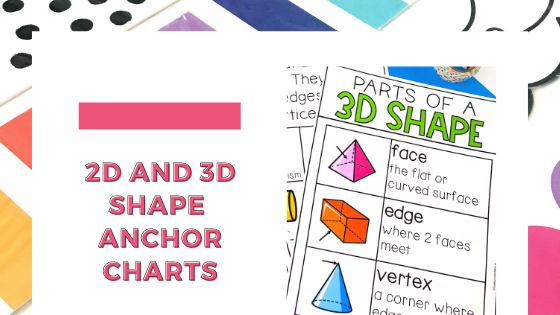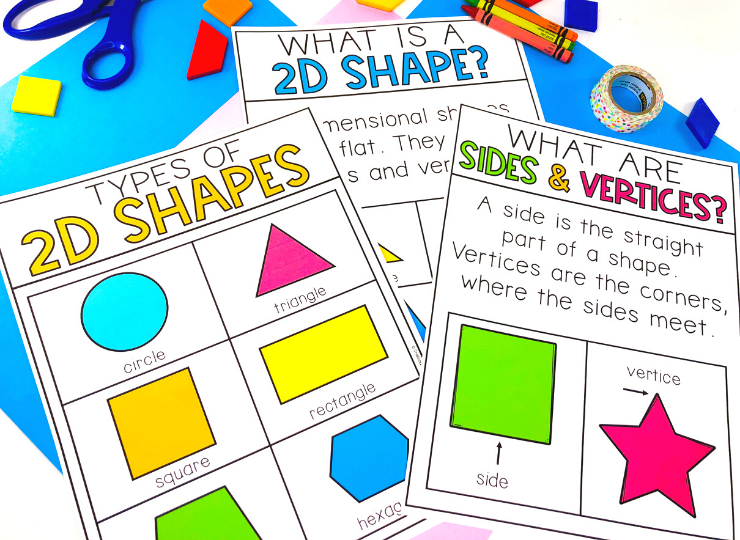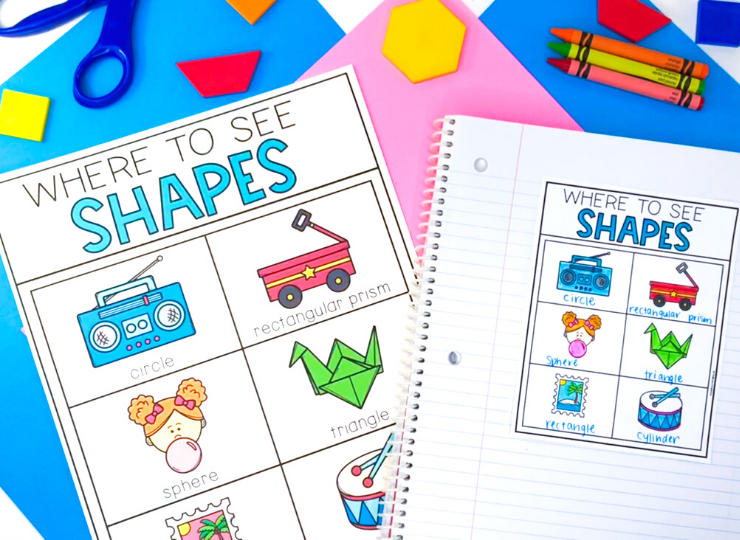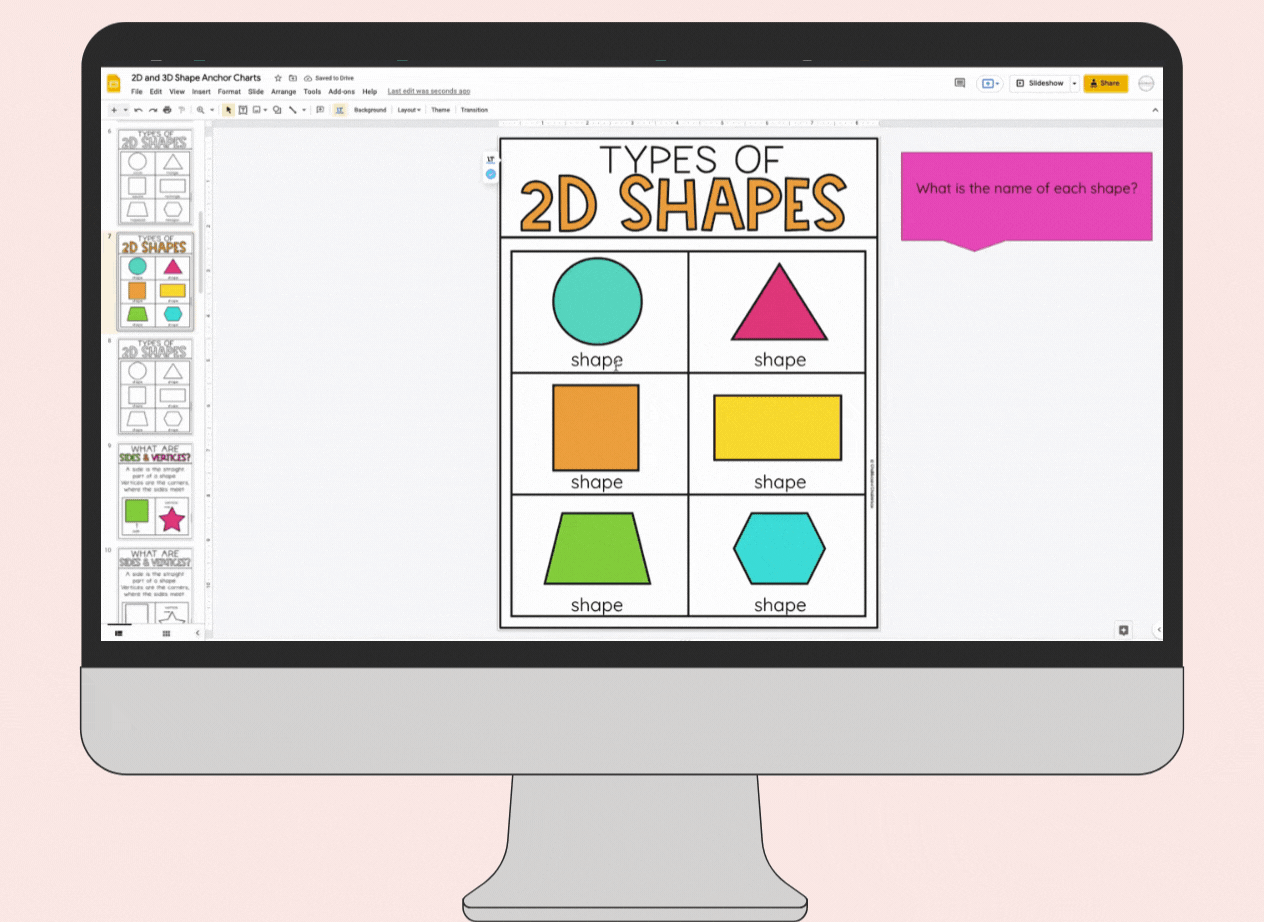2D and 3D Shape Anchor Charts
2D and 3D shapes are fun and engaging for students to explore and observe. You can use bright and colorful shape anchor charts to help students identify 2D and 3D shapes and their attributes. In this post, you’ll find math anchor charts for:
attributes of 2D and 3D shapes
how to identify shapes in the real world
2D Shape Anchor Charts
Introduce 2D shapes by asking students to look around the classroom and point out some shapes that they observe. Many students may already be familiar with some shape names.
2D Shapes
Help students understand that 2 dimensional means a shape that is flat.
Attributes of 2D Shapes
Once students are familiar identifying 2D shapes, they can begin exploring and comparing the attributes of the shapes. Using pattern blocks, students can count the number of sides and vertices.
3D Shape Anchor Charts
Use what students know about 2D shapes to introduce and compare 3D shapes. Look for 3D shapes around the room.
3D Shapes
Have a discussion to help students understand that 3D shapes aren’t flat, they are solid.
Attributes of 3D Shapes
Now, that students are comfortable finding vertices, help them identify edges and faces of 3D shapes. Use Geometric Solids to observe and count the attributes of different solids.
Digital Anchor Charts
Ready to take your anchor charts to the next level? It’s time to go digital. Use Google Slides to display your anchor charts in a digital format to save precious wall space.
Students can take ownership of their learning by creating their own anchor charts.
Wrap-Up
2D and 3D shape anchor charts are just what you need for an easy way to help students identify shapes.
use anchor charts to compare and classify shapes
teach students attributes of shapes
Want to try this later? Save these 2D and 3D Shape Anchor Charts to your favorite Pinterest board.
You’ll love these related posts














